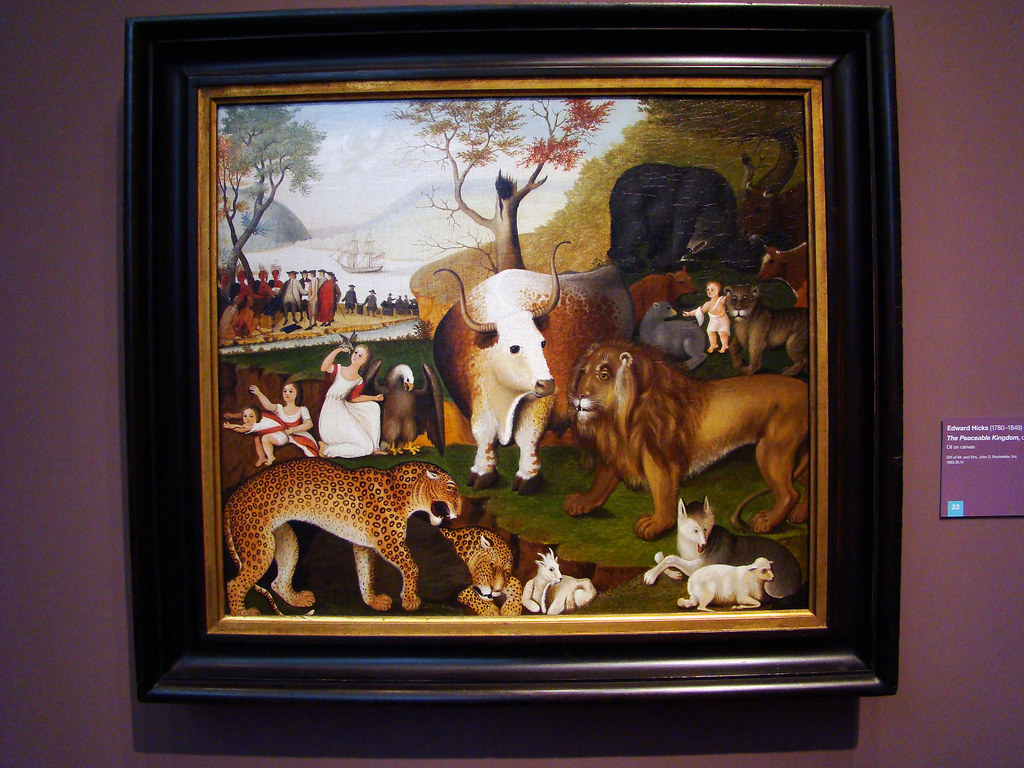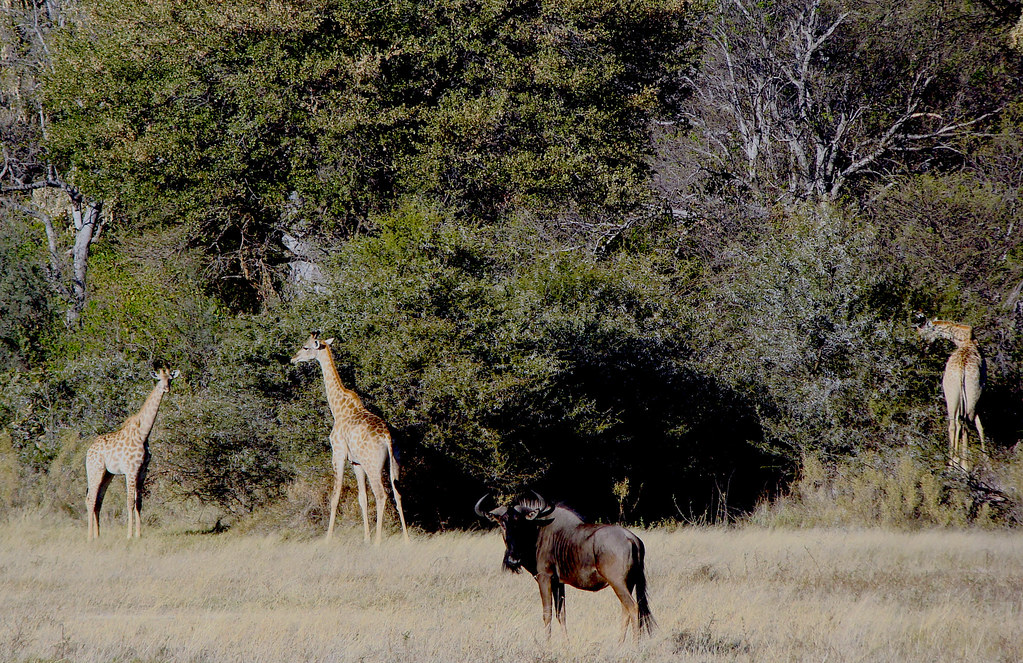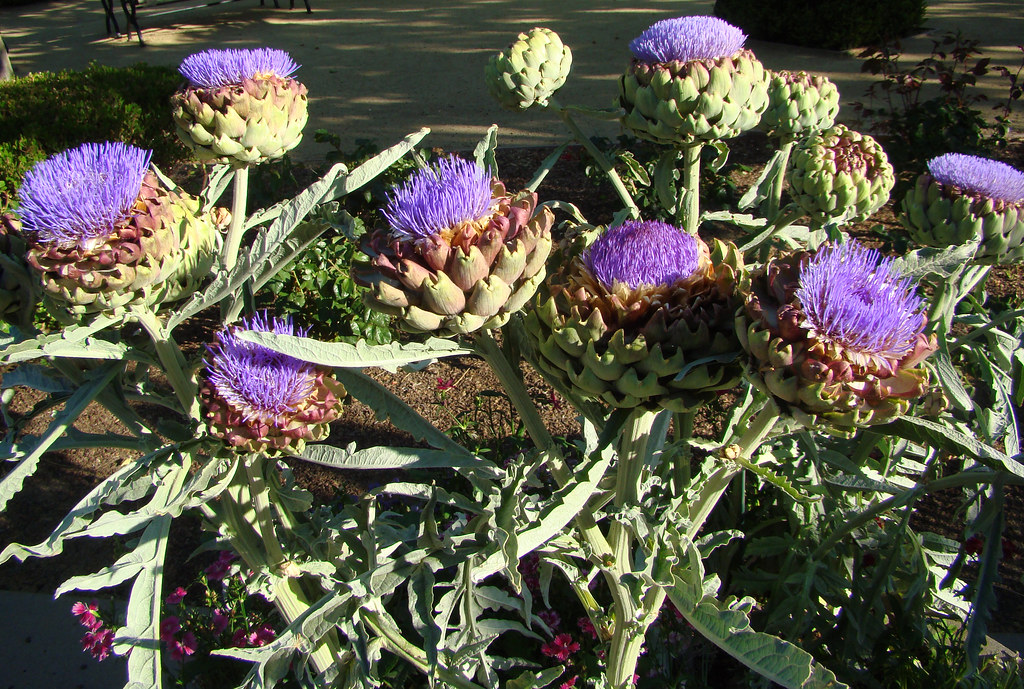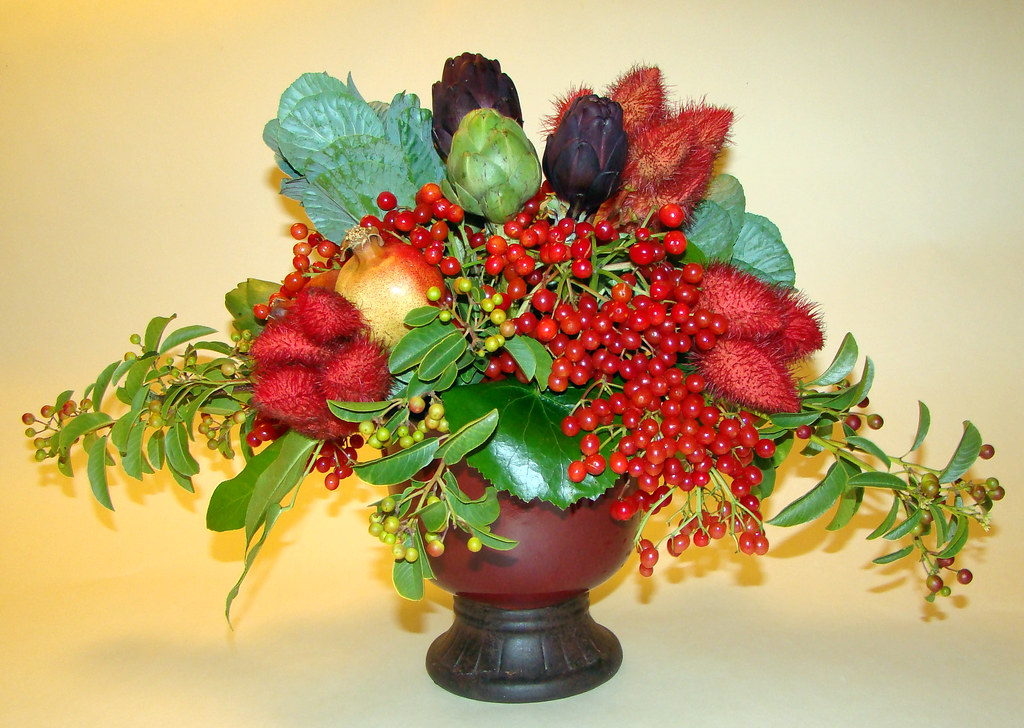oil on canvas, 25 x 28 1/2 (63.5 x 72.4 cm), Gift of Mr. and Mrs. John D. Rockefeller 3rd
Fine Arts Museums of San Francisco
Quaker folk artist, Edwards Hicks (1780-1849), created a series of over 60 paintings called “The Peaceable Kingdom” in which he depicts an animal kingdom where predators and prey lie next to each other in peace.
I always found this to be a compelling image but I never thought I would ever be witness to anything close to this ideal. When I researched our big trip to the Okavango Delta in Botswana, I would run across countless magnificent close-up images of African wildlife, but it was less common to see images of multiple species in the same photo. Once in a while I would run into illustrations that would feature giraffes, wildebeests, and zebras all artfully posed on the same plain and I would judge it to be contrived. The brochures didn't give me a sense of the density and diversity of animals I could expect to see.
Though predators did not exactly lie next to prey, I was surprised to see how many species shared the same space in a peaceful coexistence. I was amazed to see these Burchell's Zebras sloshing in the same waters as the Red Lechwe antelopes...
...and grazing alongside a giraffe in front of a staff cabin at Chief's Camp...
Burchell's Zebra (Equus quagga burchellii) and Southern Giraffe(Giraffa camelopardalis giraffa)
I was astonished when I saw these giraffes quietly nibbling acacia leaves in the same field as this wildebeest...
Southern Giraffe(Giraffa camelopardalis giraffa) and Common Wildebeest (Connochaetes taurinus)
...and delighted when a herd of impalas joined the gathering:
I was perfectly content as I lulled myself into thinking that this real-life peaceable kingdom was the status quo. I oohed and aahed when I saw these impressive trees laden with large nests...

...and was captivated as we approached and saw two species of vultures in side-by-side trees:

Hooded Vulture (Necrosyrtes monachus))

Hooded Vulture (Necrosyrtes monachus))
White-backed Vulture (Gyps africanus))
We cooed when someone in our group noticed that one of the nests was occupied:
White-backed Vulture (Gyps africanus))
We felt fortunate to stumble upon a lion, even though he was sound asleep...

Lion (Panthera leo))
...and another, in an equal state of stupor:

Lion (Panthera leo))
But then I smelled the putrid odor. Why did I not put two and two together? How did I think these carnivores sustained themselves?


So much for the peaceable kingdom; lions do not lay next to lamb. Yet, this is the perfect balance of nature. We are in the wild; there are no fences here in the Moremi Game Reserve. Maybe the peaceable kingdom is one that sustains an enduring, stable equilibrium within an ecosystem. I think that is the true wonder we witnessed.
UPDATE: Ruth of Synch-ro-ni-zing shared this perfect poem for this post:
The Heaven of AnimalsThank you, Ruth, you are the best!
By James L. Dickey
Here they are. The soft eyes open.
If they have lived in a wood
It is a wood.
If they have lived on plains
It is grass rolling
Under their feet forever.
Having no souls, they have come,
Anyway, beyond their knowing.
Their instincts wholly bloom
And they rise.
The soft eyes open.
To match them, the landscape flowers,
Outdoing, desperately
Outdoing what is required:
The richest wood,
The deepest field.
For some of these,
It could not be the place
It is, without blood.
These hunt, as they have done,
But with claws and teeth grown perfect,
More deadly than they can believe.
They stalk more silently,
And crouch on the limbs of trees,
And their descent
Upon the bright backs of their prey
May take years
In a sovereign floating of joy.
And those that are hunted
Know this as their life,
Their reward: to walk
Under such trees in full knowledge
Of what is in glory above them,
And to feel no fear,
But acceptance, compliance.
Fulfilling themselves without pain
At the cycle’s center,
They tremble, they walk
Under the tree,
They fall, they are torn,
They rise, they walk again.
I will leave you with the original version of the African song "Mbube", written by Solomon Linda...
... and the version by The Tokens, named "The Lion Sleeps Tonight", that brought the song to fame in America is here.














